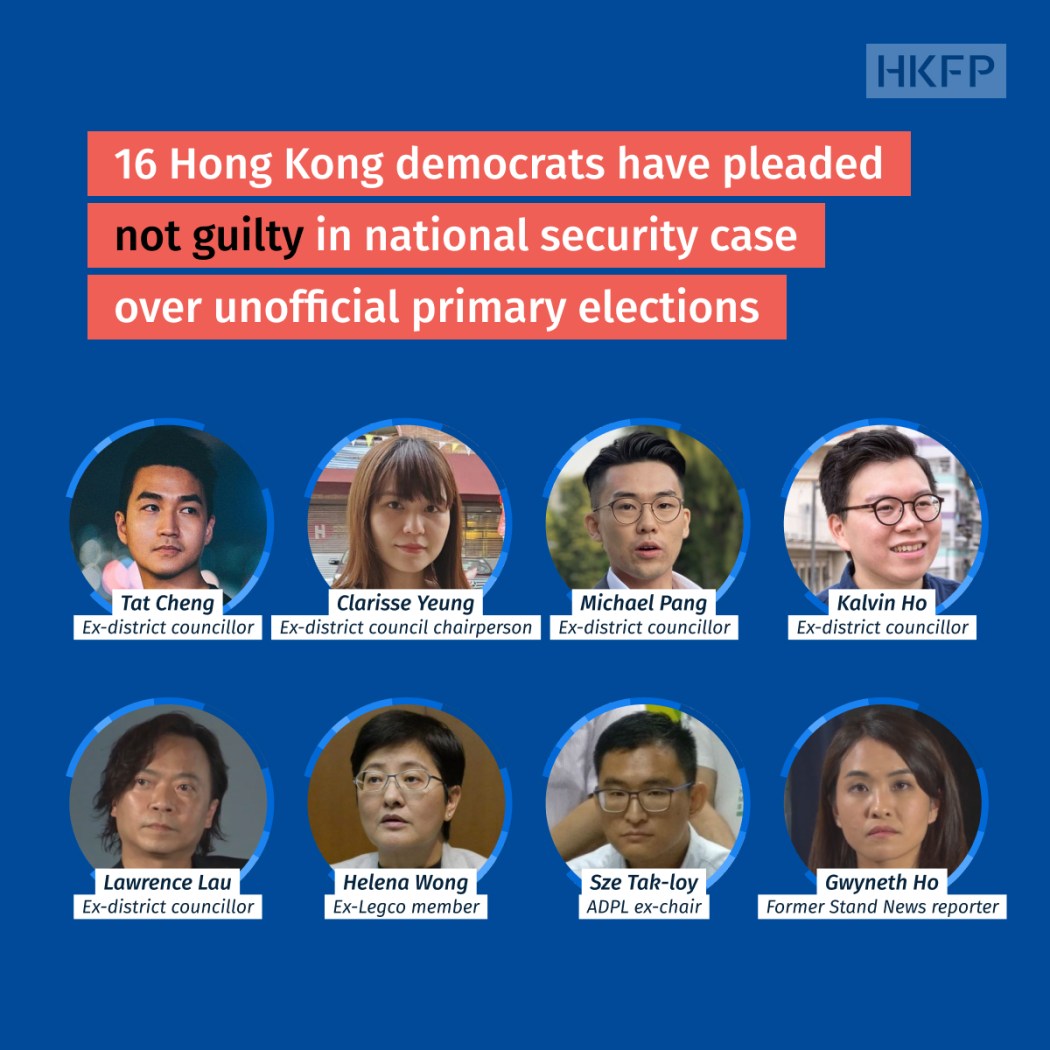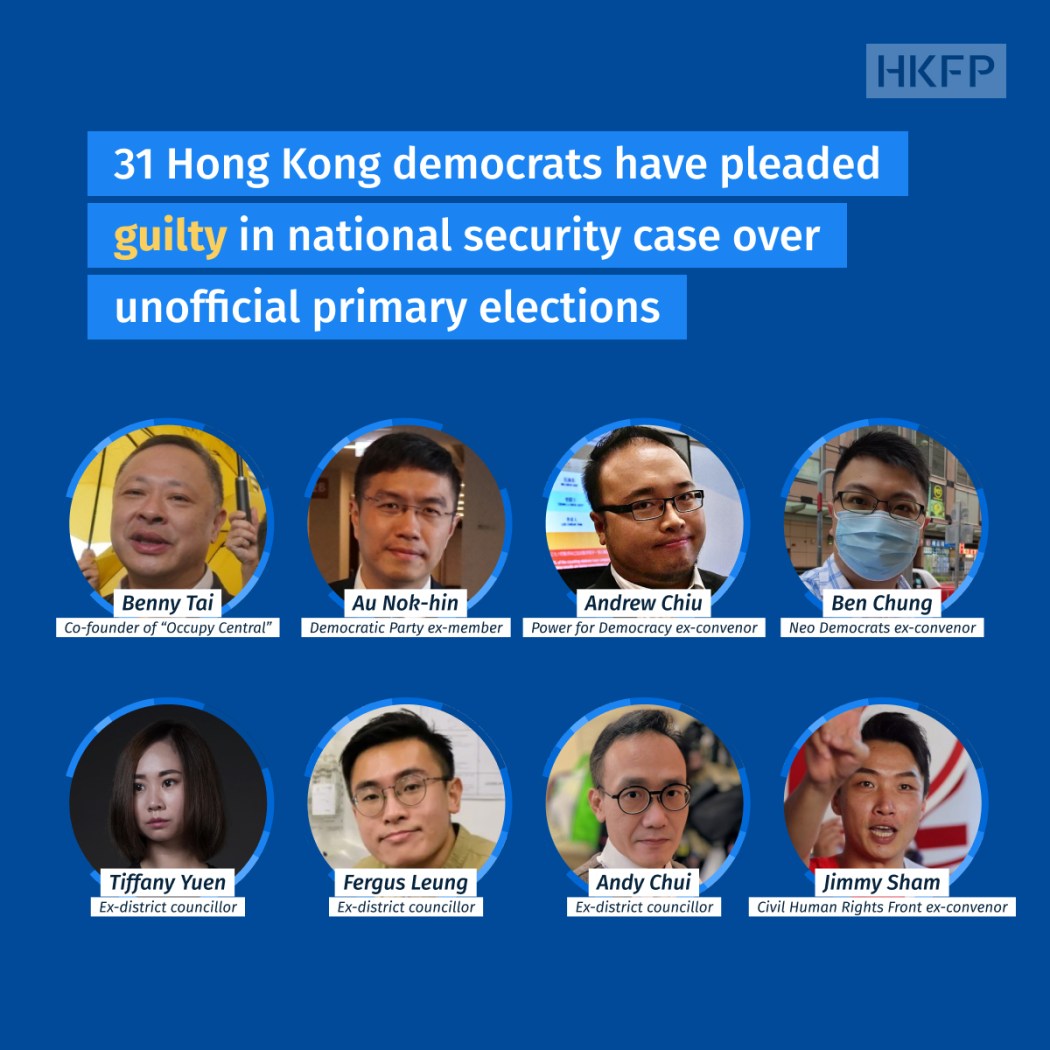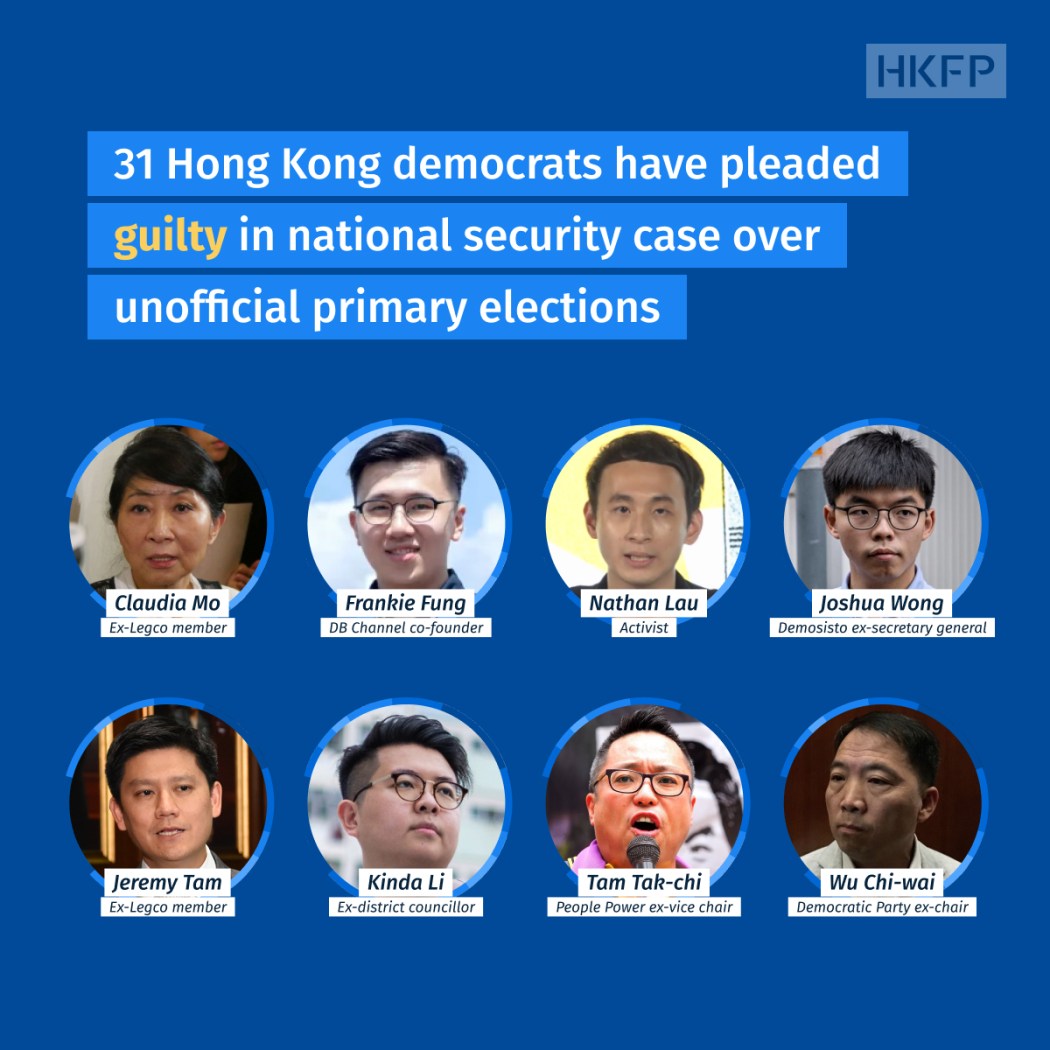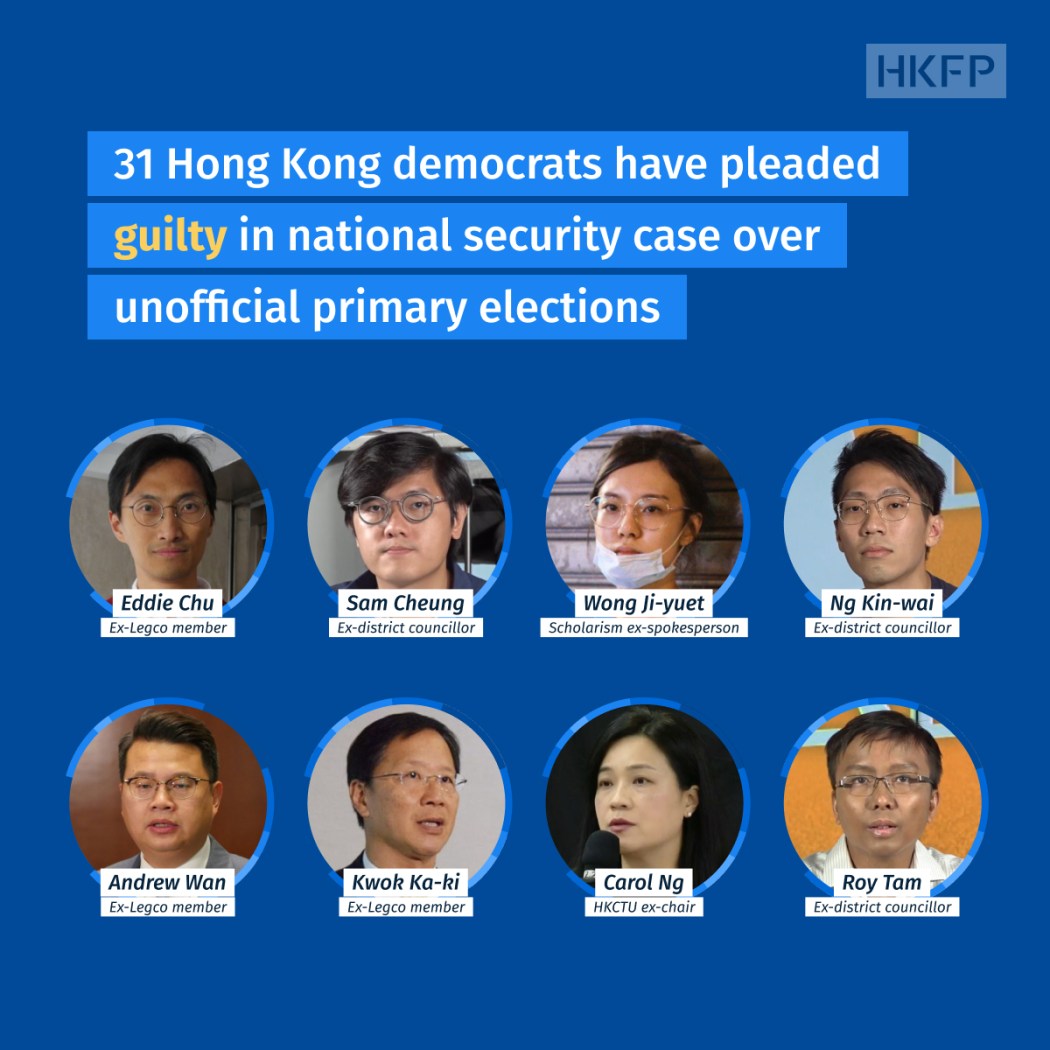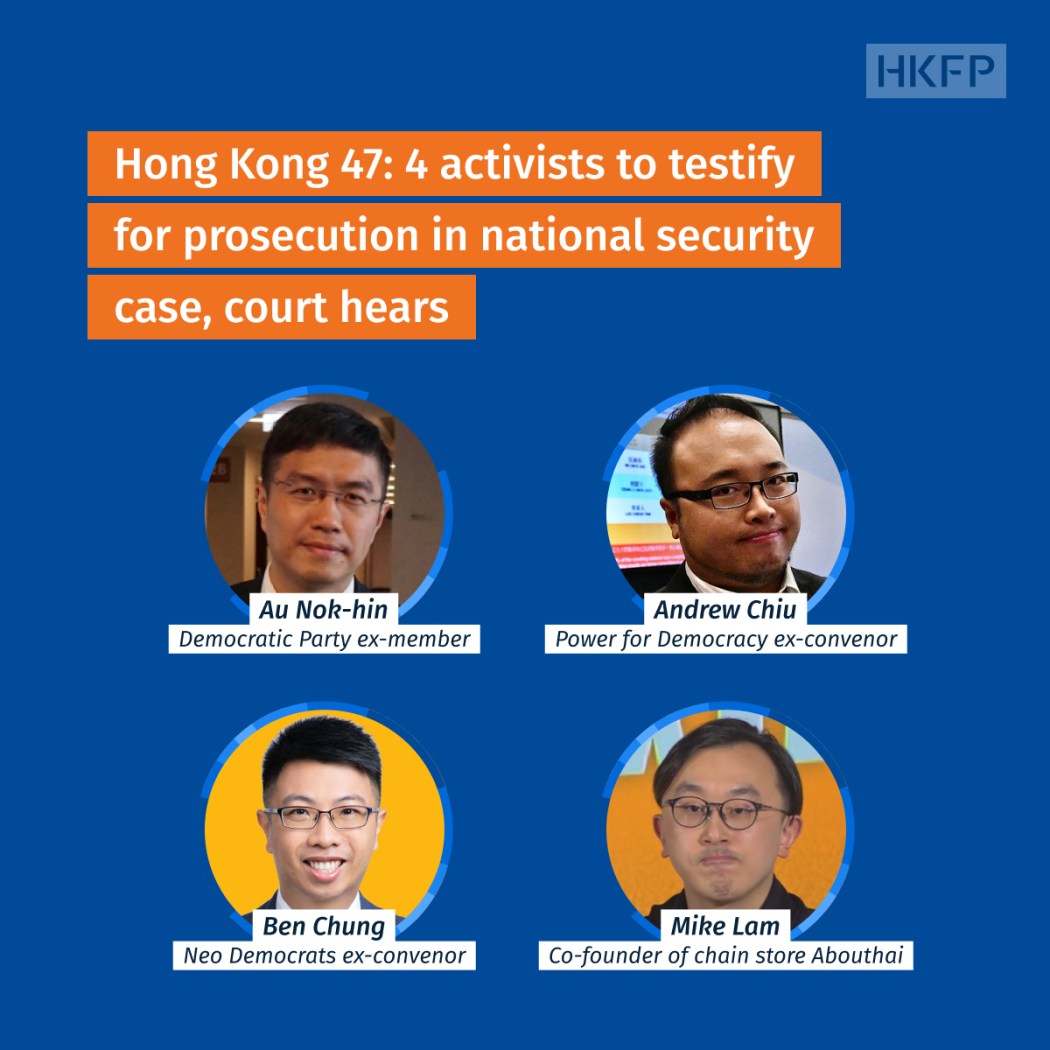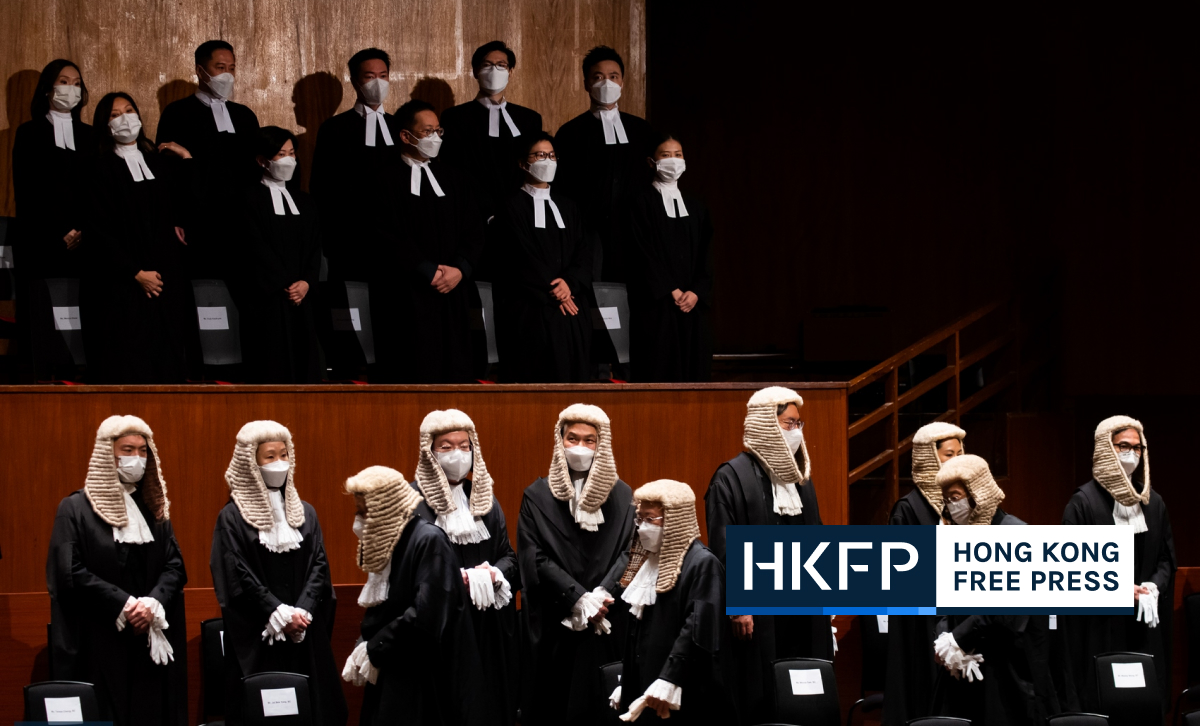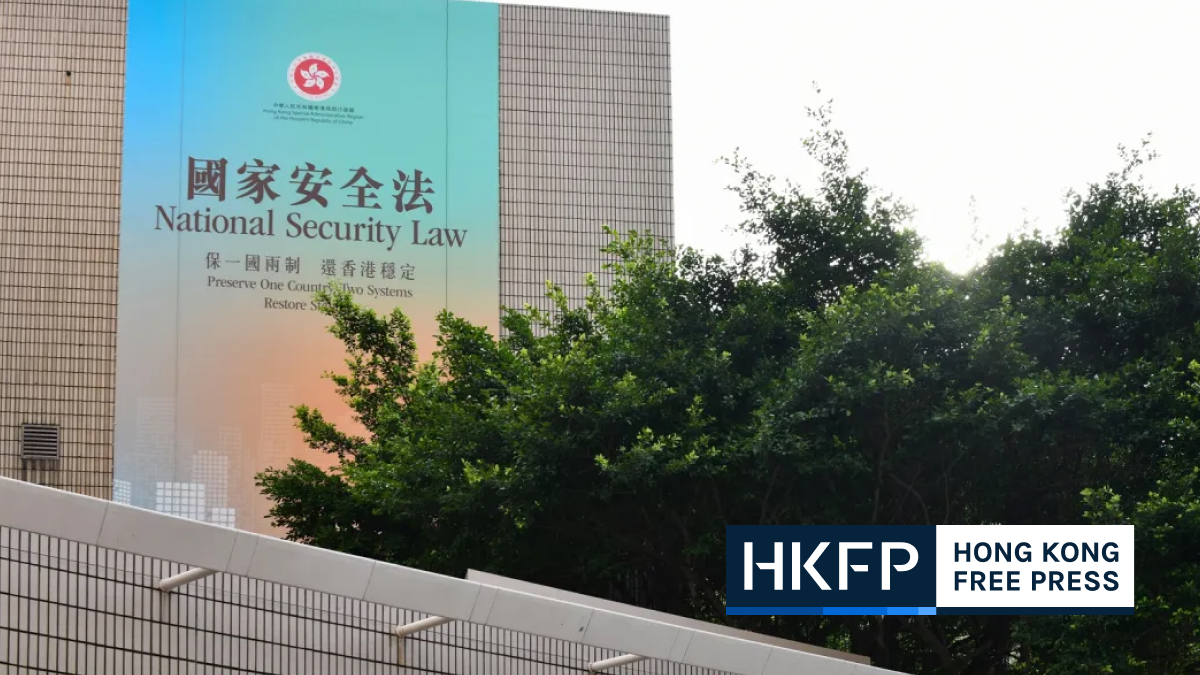Calling communist China a totalitarian regime was an “objective” description without any derogatory meaning, Hong Kong journalist-turned activist Gwyneth Ho testified in a national security trial relating to 47 pro-democracy figures.

The former reporter for now-defunct online news outlet Stand News took the witness stand for the sixth day on Tuesday morning, as the closely-watched trial – which revolves around an opposition legislative primary election in July 2020 – entered day 91.
A panel of three handpicked judges heard the 32-year-old, who denies conspiracy to commit subversion, explain her understanding of the Chinese Communist Party, after prosecutors alleged that she had described Beijing’s regime as “totalitarian” at a forum before the primary.
The present case involves 47 prominent politicians and activists accused of subversion by organising or taking part in the primary, which was intended to help the pro-democracy camp select the strongest election candidates and win a controlling majority in the 70-seat legislature.
Prosecutors have alleged that the democrats intended to abuse their powers as lawmakers – if elected – to indiscriminately vote down government bills, paralyse government operations, cause the chief executive to dissolve the Legislative Council, and ultimately force the city’s leader to resign.
Authorities later postponed the Legislative Council election, citing the Covid pandemic. It was eventually held under a revamped political system ordered by Beijing which made it much harder for opposition candidates to stand.
Only 16 defendants are facing trial after they pleaded not guilty to the charge, punishable by up to life imprisonment. The remaining 31 democrats pleaded guilty and will be sentenced after the trial ends. Many of the 47 have been held in custody for two and a half years.
Totalitarianism
Ho told the court that calling the Chinese regime “totalitarian” was a “consensus” in academia, but subject to different ways of categorisation. It could be described as digital totalitarianism or neo-totalitarianism, the defendant said.
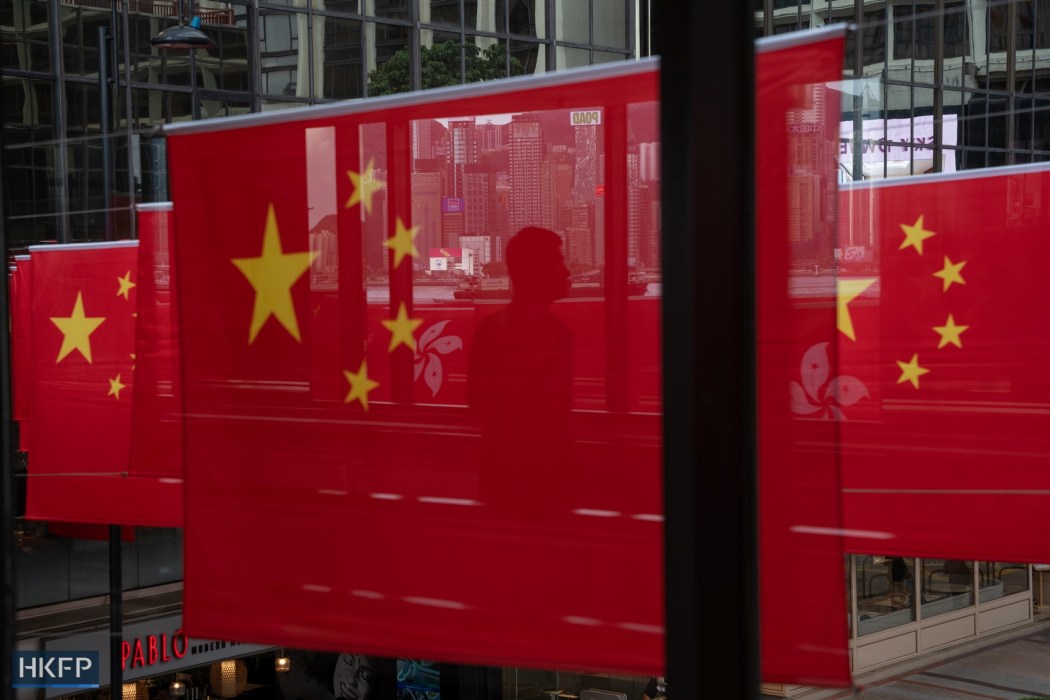
“Although ‘totalitarian’ sounds like a criticism, often times there is a definition. The word ‘total’ in English can be understood as total control. It means… everything could be monitored and controlled by the regime,” Ho said.
Ho’s lawyer Trevor Beel followed up by asking if Ho meant it “as a matter of fact” and was not using “totalitarian” as a derogatory term. Lead prosecutor Jonathan Man Tak-ho objected, saying it was a leading question.
High Court Judge Andrew Chan then asked the former reporter to explain her understanding of the Chinese Communist Party, to which Ho said she “did not know” because she has spent “two and a half years in jail” pending trial.
Beel was asked by the judge to define totalitarianism, which he said meant there was only one political party. Chan followed up by asking if Japan was a totalitarian regime and the lawyer said “no.” The judge then pointed to Russia, and the counsel said Russia was a totalitarian regime.
| 💡 Japan is a multi-party democracy with regular elections, a free press, strong institutions and a three-way separation of powers. The Liberal Democratic Party is the largest party and has held power almost consecutively since its founding in 1955. It currently runs a coalition with the Komeito party. The Constitutional Democratic Party of Japan is the leading opposition party and holds 97 out of 465 seats in the lower house. |
“Why?” Chan asked, adding that Japan only had one party.
Ho interjected and said: “What? No, Japan has a communist Party too.”
The debate ended when another designated judge Alex Lee said the court was not concerned with academic debate but, rather, with what Ho thought at the time. Beel asked his client to explain again what was was on her mind when she made such remarks during the forum.
She responded by saying that calling communist China a totalitarian regime was a neutral description.
“I agree calling communist China a totalitarian regime is an objective description… it has nothing to do with having derogatory meaning or not. The problem is that Hongkongers do not want such a system,” she said.
‘Dysfunctional’ legislature
Ho on Tuesday was asked to explain statements she made in a primary election forum in late June 2020, when she claimed that the Legislative Council was no longer a place for policy deliberation but rather a “site for protests.”

The former reporter said she saw the city’s legislature as “dysfunctional” because lawmakers could not really impose checks and balances on the executive branch. Legislators may not be able to request government officials to submit documents to the legislature and therefore did not have enough information to vote on policies, she said.
“If the government treats legislators with such an attitude, it shows that they do not believe they need to listen to the opinions of the Legislative Council or provide sufficient information to the legislators. In that case, I would say that the basic function of deliberating a policy cannot be fulfilled,” she told the court.
‘Resistance spirit’
During the forum, Ho had mentioned that the pro-democracy candidates should display “resistance spirit” in order to persuade the people of Hong Kong that legislative protest still played a major role in the social movement at the time.
Her remarks were part of her questions to then-Civic Party leader Alvin Yeung, whom she saw as making empty promises and giving “false hope” to voters, as the party did not specify how its lawmakers would act if a pro-democracy majority control could not be achieved.
Pro-democracy legislators should deliberate each bill diligently and take a firm stance on different issues, rather than only on issues with which the general public was concerned, Ho explained in court on Tuesday. They should avoid making promises to their voters that they could implement certain demands if they get elected, Ho said, adding the candidates must acknowledge the LegCo was not a place where policies could be deliberated.
The former reporter added that if elected, the democrats should not act in a way which prioritised keeping their seats or avoiding disqualification.
Ho will continue to testify on Wednesday.
In June 2020, Beijing inserted national security legislation directly into Hong Kong’s mini-constitution – bypassing the local legislature – following a year of pro-democracy protests and unrest. It criminalised subversion, secession, collusion with foreign forces and terrorist acts, which were broadly defined to include disruption to transport and other infrastructure. The move gave police sweeping new powers, alarming democrats, civil society groups and trade partners, as such laws have been used broadly to silence and punish dissidents in China. However, the authorities say it has restored stability and peace to the city.
Support HKFP | Policies & Ethics | Error/typo? | Contact Us | Newsletter | Transparency & Annual Report | Apps

